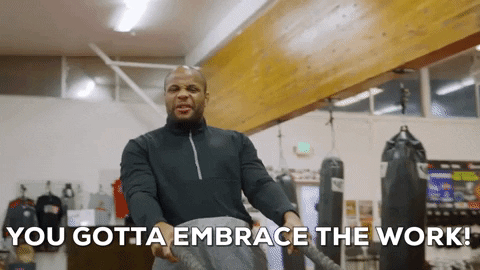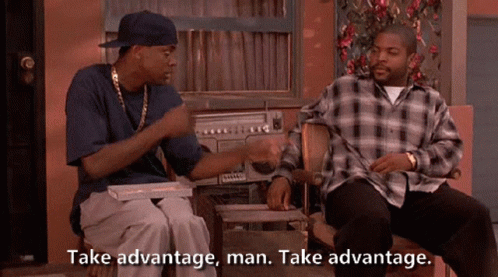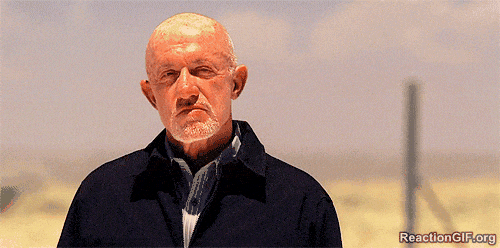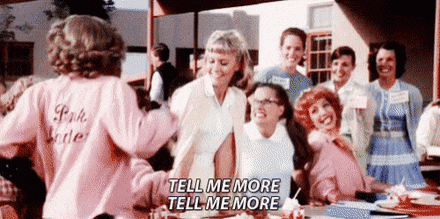If you are a podcaster, you will likely want to add another person as a co-host at some point in your podcasting career. When considering the idea of adding someone else to your podcast, there are many things to think about and factors to consider before making any final decisions. Here are five expert tips for finding good co-hosts for your show!
What is a co-host, and why do you need one?
A co-host is a person who hosts with you on your podcast and helps keep the show going. Planning for a potential co-host is essential. Co-hosts can help take the strain off of your life as you handle other responsibilities. Co-hosts also provide more opportunities to share different perspectives on topics so that your audience doesn't get bored listening to one voice all the time! Successful hosting partnerships often take turns speaking in roundtable discussion formats, but this is not always necessary.
A podcast host may need a co-host if they are experiencing the following challenges with their podcast:
- It isn't easy to find time in their life for the podcast with other responsibilities such as work or school.
- They are tired of producing a show independently and would like to collaborate with someone else.
- Their podcast has plateaued or needs new ideas.
Co-hosts can help take some of this burden off your shoulders and provide you more opportunities, but there are many considerations before finding one! Read below for additional tips about how to find an excellent co-host.

How to find the right person for your podcast
Tip #01: Know what qualities you're looking for in a partner! Do they have the same interests? Have similar skill sets? Share the same values? Will it be easy to meet at scheduled times every week?
Tip #02: Make a list of what you're looking for in your co-host!
Tip #03: Create a shortlist and then narrow down the potential candidates. For Example, do they have social media followers that will grow your audience? Do their skills complement yours? To find emails and phone numbers of your prospects, use a contact search engine. This will allow you to easily find the contact information for the people you are considering working with.
Tip #04: Meet with them and see if they are interested in being a part of the show.
Are you on good terms with this person's friends, or has anything come up that might make it challenging to work together successfully? When considering adding a co-host to a podcast, you want to make sure that what they're expecting is harmonious with the expectations of any current hosts. Ask them how often they want to meet, where they would like these meetings to take place (either in person or online), how much time commitment they are willing to give, and whether any topics should be off-limits. It would be helpful if both parties can share examples of past content as well.
Tip #05 – Create a “contract” that lays out all of the expectations including, but not limited to:
- The amount of time you'll spend working together developing the show's content
- Who will own any intellectual property created during this partnership?
- What happens if one person wants out after six months or three years—can they give notice in advance? How much money would need to change hands at that point? What about other assets like equipment or domain names?
You want to be on the same page as much as possible in the beginning to limit potential misunderstandings later on.

Tips on how to work with your co-host
Tip #01 – Know the expectations for both you and the co-host.
- What do you want to cover on the show? What topics are off-limits? Who gets the final say over what goes into an episode of the podcast? How often will episodes be published?
- Who takes responsibility for getting sponsorships for the show's ads or merchandise sales (if any)? If there is no revenue coming in from that area, then it could make sense to find someone else who can fulfill this task.
- Who will be responsible for social media outreach and promotion?
- How often should new episodes be published there?
Tip #02: Work out a realistic schedule that you can stick to and has wiggle room for situations where “life happens,” and an itinerary adjustment is necessary. It would help if you also discussed the approximate time per week spent editing podcasts before publishing them to your podcast or another website (unless you're outsourcing the job).
For Example, You record on Tuesdays from 11 am-12 pm EST but have work commitments come in every Wednesday from 12 pm-11 pm. It may not make sense for your co-host to take up this responsibility if they need time away from other duties to make up for the hours you don't have.
Tip #03: Figure out how many podcasts can be recorded and edited in a given week before things start to pile up. Without allowing a margin for error or other tasks required, this could put you under an excessive amount of pressure during the week.
For Example: If I only have five days per month where you have availability to edit the show (due to job responsibilities), then it would take 20 weeks of editing before everything piles up and becomes unmanageable without hiring someone else who can help with production timelines of data entry records, interviews, scheduled recordings, etc.).
Tip #04 – Podcast hosts looking for new co-hosts should decide what roles they want their new co-host to fill.
There are two main approaches:
- The first approach might be to bring in someone who can take over the administrative and organizational aspects of running the show, which frees up time so that you can focus on overall production or content strategy. If you are currently juggling responsibilities from multiple projects, this may make sense. You do need help understanding how to make all of the pieces and parts work together.

How can you tell if someone is going to be a good fit?
- They get it – If they understand your mission, vision, values, and goals for your podcast from meeting with them, then that's half the battle won.
- They care about content – You need people who are invested in what you do or trying to achieve because this will help motivate them through any obstacles on the way there. Content creators, by nature, have an intrinsic motivation towards quality, so these individuals might already be well-suited as potential co-hosts without even realizing it!
- Their personality meshes with yours – Similarity in nature means a lower chance of ego clashes when working closely together, leading to better synergy and collaboration.

The benefits of having a co-host
- Having a co-host brings variety to your show that listeners will appreciate.
- Co-hosts can be an affordable option, especially if you know talented friends or people in the industry who are willing to contribute on a volunteer basis.
- The host may not always be available when needed; bringing on a partner ensures there is coverage when they need help. (This increases productivity by adding another person with fresh ideas and energy into the mix.)
- It's an opportunity for growth – as you grow together through this working relationship over time, both of your brands should benefit from increased visibility through the combined team effort.
- A co-host's exposure is an advantage and vice versa. Adding a co-host to your podcast would lead to an increase in the diversity of followers.
- If your co-host is also a professional in their field, it can build credibility for you and them.
- It increases the diversity of topics being covered on each episode by adding another set of different ideas but complementary to what you bring to the table.
(Example: if someone has an engineering background, they may be able to provide tips specific to engineers or people with interests explicitly related to this type of profession.)
- It's great when everyone brings something valuable into the mix! Some of the best podcast conversations that I have listened to were not two hosts agreeing with one another but having different perspectives that allow contrast and a different angle on a particular topic.

When not to have a co-host
- To avoid too many cooks in the kitchen.
- Suppose you and your co-host disagree on things. In that case, it can be challenging to keep a civil conversation going for an extended time or across multiple episodes without one party feeling frustrated with the other. It's okay to disagree, but be amicable and willing to listen and learn from one another. Your audience will appreciate it.
- If there's not enough content to make it enjoyable! You want the podcast to have some substance so that people will want to listen again; if you don't give them any reason they should, no one will stick around long enough for your show's second season or upcoming episodes (which never comes).
- Your audience may not want a co-host on the podcast if they prefer to hear your opinions, perspectives, interview questions. They know, like, and trust you already. If it isn't broke, don't fix it.

I enjoy listening to the Paul Finebaum Show on the SEC Network (ESPN). The show primarily focuses on American College Football. Paul had a co-host join a few seasons back named Laura Rutledge. I thought Laura was very witty and brought a unique dynamic to the show, but I was never tuning in to hear from her. I wanted to hear from Paul.
Laura later moved on. Paul was very defensive and protective of Laura when his audience said they only wanted to hear from him. It eventually worked itself out. Laura was never a lousy commentator or co-host, but some listeners argued that she wasn't the right fit for the show, and Paul Finebaum didn't need a co-host. I like Laura, but I agreed with that sentiment. Laura has moved on to bigger and better things. She has a bright career in front of her.
Having a co-host for your podcast is an important decision that can either make or break the success of your show. Your co-host will be responsible for helping you with the workload and responsibilities related to creating and maintaining episodes. Finding someone who has a similar personality to you and being passionate about what they do is worth the effort to find because these qualities will create chemistry with potential listeners.
What are some recommendations that you have regarding co-hosts on podcasts? Please feel free to share them with us either in the Podcast Movement Facebook community or Podcast Movement University.
Additional Resources

Examples of great podcast co-hosts:
Crime Junkies – This show experienced some bad press for plagiarism accusations, but it is still a fantastic true-crime podcast. The hosts are excellent.
90 Day Gays – Jake Anthony and Matt Marr are two Southern Queens who absolutely love TLC's 90 Day Fiancé.
Gorilla Monsoon and Bobby “the Brain Heenan” – This may not seem like an obvious pick (and also not a podcast, unfortunately), but these two wrestling legends and Hall of Famers co-hosted WWE Prime Time Wrestling on the USA Network for years. They were super entertaining to watch, even if you are not a wrestling fan.



Join the Movement